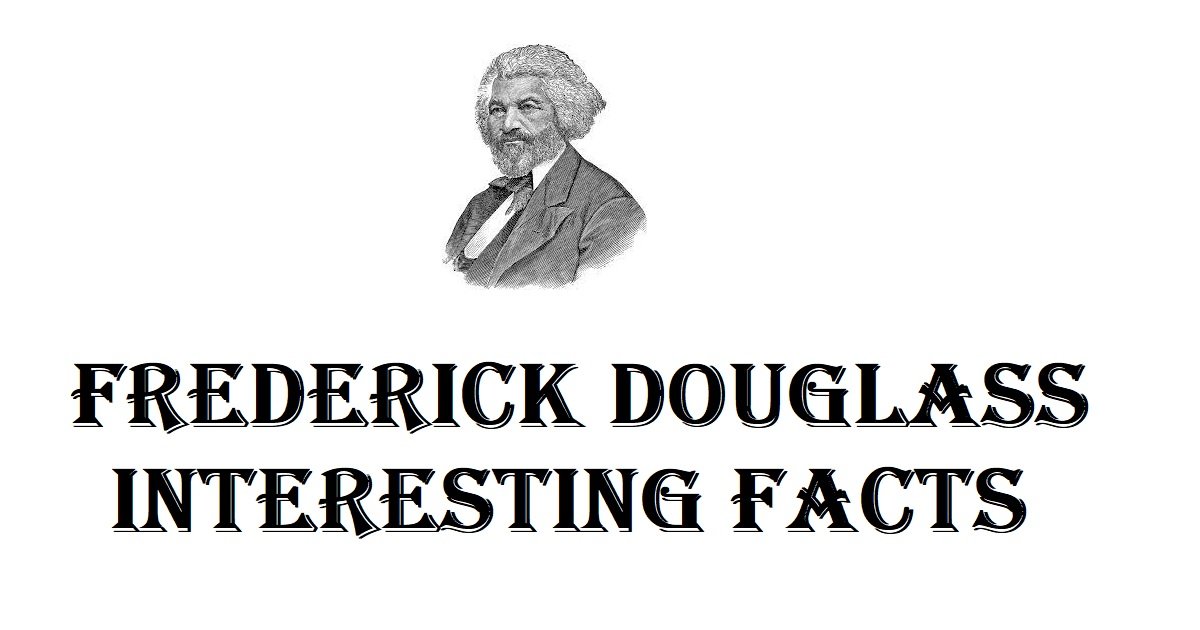Introduction
Frederick Douglass was a towering figure in American history, a remarkable individual who defied the odds and emerged as a prominent leader in the fight against slavery and for civil rights. Born into bondage, he not only escaped the shackles of slavery but also rose to become an influential abolitionist, orator, writer, and statesman. While many are familiar with his contributions to the abolitionist movement and his famous autobiographies, there are several lesser-known aspects of his life that make him even more intriguing. In this article, we’ll explore ten fascinating facts about Frederick Douglass that shed light on the incredible journey of this historical icon.
Birthdate and Name
Frederick Douglass was born as Frederick Augustus Washington Bailey, but the exact date of his birth remains a mystery. He believed he was born in February 1818, though there are no records to confirm this. In his later years, he chose February 14 as his birthdate, celebrating it as his birthday.
Self-Taught Literacy
One of the most remarkable aspects of Douglass’s life is his pursuit of knowledge while still enslaved. Against all odds, he managed to teach himself to read and write, a dangerous and illegal endeavor at the time. This literacy proved to be a pivotal factor in his escape from slavery and his future success as a writer and orator.
The North Star
In 1847, Frederick Douglass launched his newspaper, “The North Star,” a powerful platform for advocating abolitionist ideals. The newspaper’s name was symbolic, as the North Star served as a guiding light for escaped slaves traveling north to freedom.
International Advocate
Douglass’s impact extended beyond American borders. He traveled to England and Ireland, where he garnered support for the anti-slavery cause. His speeches and writings resonated with audiences worldwide, further fueling the abolitionist movement.
Political Appointments
After the American Civil War and the abolition of slavery, Douglass continued his activism. He held several prominent government positions, including U.S. Marshal for the District of Columbia and Minister Resident and Consul General to Haiti, where he served as the highest-ranking American diplomat.
Advocate for Women’s Rights
Frederick Douglass was an early advocate for women’s suffrage, believing that women should have the right to vote. He attended the Seneca Falls Convention in 1848, where he supported the Declaration of Sentiments, which called for women’s equality.
Name Change
He chose the surname “Douglass” when he escaped from slavery, inspired by a narrative poem by Sir Walter Scott, “The Lady of the Lake.” He believed the name sounded strong and dignified, a stark contrast to the dehumanizing conditions of slavery.
Talented Orator
Douglass was renowned for his powerful and persuasive oratory skills. His speeches, such as “What to the Slave Is the Fourth of July?” and “The Meaning of July Fourth for the Negro,” are still studied today for their eloquence and impact.
Friendships with Influential Figures
Throughout his life, Douglass developed close friendships with prominent individuals, including Susan B. Anthony, Harriet Tubman, and Abraham Lincoln. These relationships played a significant role in advancing the causes of abolition and civil rights.
Three Autobiographies
Douglass wrote three autobiographies during his lifetime: “Narrative of the Life of Frederick Douglass, an American Slave” (1845), “My Bondage and My Freedom” (1855), and “Life and Times of Frederick Douglass” (1881). These memoirs provide invaluable insights into his life, experiences, and the broader struggle for freedom and equality.
Conclusion
Frederick Douglass’s life is a testament to the indomitable human spirit and the power of knowledge, resilience, and activism. From his humble beginnings as a slave to his rise as a prominent abolitionist and advocate for civil rights, his story continues to inspire and educate people around the world. These ten fascinating facts only scratch the surface of the incredible journey of Frederick Douglass, a true American hero whose legacy endures to this day.
